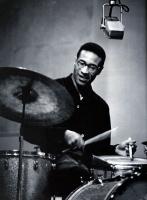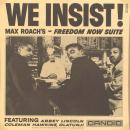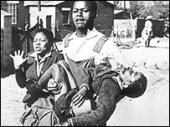The beat has a rich and magnificent history,
Full of adventure, excitement, and mystery.
Some of it bitter, and some of it sweet,
But all of it part of the beat, the beat, the beat.
They say it began with a chant and a hum,
And a black hand laid on a native drum.
Bantu, Zulu, Watusi, Ashanti, Herero, Grebo, Ibo, Masuto, Nyasa, Ndumbo, Umunda, Bobo, Kongo, Hobo, Kikuyu, Bahutu, Mossi, Kisii (Kissi/Kisi), Mbangi, Jahomi, Fongo, Bandjoun, Bassa, Yoruba, Gola, Ila, Mandingo, Mangbetu, Yosee, Bali, Angoli, Biombii, Mbole, Malinke, Mende, Masai (Maasai), Masai, Masai
Full of adventure, excitement, and mystery.
Some of it bitter, and some of it sweet,
But all of it part of the beat, the beat, the beat.
They say it began with a chant and a hum,
And a black hand laid on a native drum.
Bantu, Zulu, Watusi, Ashanti, Herero, Grebo, Ibo, Masuto, Nyasa, Ndumbo, Umunda, Bobo, Kongo, Hobo, Kikuyu, Bahutu, Mossi, Kisii (Kissi/Kisi), Mbangi, Jahomi, Fongo, Bandjoun, Bassa, Yoruba, Gola, Ila, Mandingo, Mangbetu, Yosee, Bali, Angoli, Biombii, Mbole, Malinke, Mende, Masai (Maasai), Masai, Masai
Contributed by C. Viadel - 2008/1/22 - 15:20
×
![]()
Note for non-Italian users: Sorry, though the interface of this website is translated into English, most commentaries and biographies are in Italian and/or in other languages like French, German, Spanish, Russian etc.









"We Insist! Freedom Now", al quale parteciparono musicisti del calibro di Abbey Lincoln, Coleman Hawkins e Olatunji, è un disco seminale, colonna sonora del movimento per i diritti civili degli afro-americani che nel 1960 era nel periodo di massimo fulgore:
"[...] Nel 1960 Roach compose e incise per la Candid 'We Insist! Freedom Now Suite', un lavoro basato sui testi del poeta e cantante Oscar Brown, Jr e scritto in occasione del centenario della "proclamazione di emancipazione" di Abraham Lincoln. Un'operazione così esplicita, per l'epoca (anche per quanto riguarda la copertina del disco, veramente provocatoria), contribuì all'inserimento di Roach nella 'lista nera' dell'industria discografica americana nella seconda metà degli anni Sessanta, e lo costrinse a diradare la sua presenza in studio d'incisione. [...]"
(La citazione in questa introduzione è tratta da it.wikipedia).
Original liner notes
1. "Driva Man" – 5:10
2. "Freedom Day" – 6:02
3. "Triptych: Prayer/Protest/Peace" – 7:58
4. "All Africa" – 7:57
5. "Tears for Johannesburg" – 9:36
ALL AFRICA connotes both the growing interest of American Negroes in the present and future of Africa and also their new pride in Africa’s past and their own pre-American heritage. In this collaboration between American jazz drummer Roach, Afro-Cuban players Mantillo and Du Vall, and Nigerian Michael Olatunji, it was Olatunji who set the polyrhythmic directions. It is his voice answering Abbey Lincoln in the introduction. She chants the names of African tribes. In answer, Olantunji relates a saying of each tribe concerning freedom — generally in his own Yoruba dialect. His is also the leading drum voice (he’s actually playing three, the basic drum being an Apesi from Nigeria, a whole drum carved from the trunk of a tree.)
original liner notes by Nat Hentoff